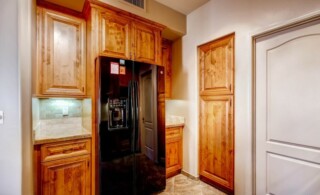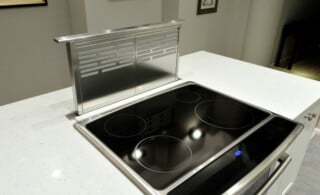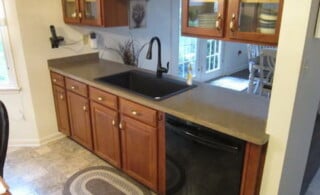
Many people prefer the traditional flavor of gas grills, but electric grills are more convenient, more versatile, and often more cost-effective. The truth is that no grill is right for every household. If your home is powered by a coal-burning power plant, a gas grill is arguably more eco-friendly. The type of diet your household prefers will also play a big role for the best grill choice. Indeed, even if convenience isn’t your biggest priority, you can’t assume that an electric grill is an inferior choice until you’ve looked at all the options….
Electric Grills: Choices, Uses, and Types
- Indoor Electric Grills: Big George Foreman has set the standard for tabletop cooking, and the Foreman grill family is now expanding. His first model revolutionized the indoor electric grill; the newer models offer even more. Current Foreman grills can be large enough to cook upwards of 5 burgers at a time and come with removable grilling surfaces, which help with cleaning. Outside the Foreman franchise, there are a number of other indoor electric grills that are quietly expanding the market. More like conventional grills, they do away with the “press” design and cook food one side at a time. People, who live in apartments or condos where traditional grills are not allowed, will be pleasantly surprised by how similar the indoor electric grill is to its gas or propane counterpart. They are available in countertop designs as well as styles that are meant for permanent kitchen placement. The only thing you’ll miss is the excess smoke!
- Outdoor Electric Grills: The electric grill is coming out of the box in a big way. In the same way that many people who used to swear by charcoal have switched to propane, it’s likely that many others will switch to electric in the future. The electric grill offers clean, sufficient heat with minimal effort. You just plug it in, turn it on, and in a few minutes, you’re ready to cook. There is no charcoal or wood to wait for, and no propane tank to replace. Some are available with an optional rotisserie, and all will cook anything a conventional grill can cook in a similar amount of time. While purchasing one can sometimes be a little more expensive than a propane model, electric grills are still competitively priced.
Ready to start your electric grill?
Find Pros- Electric Smokers: The term “smoker” can mean different things to different people. Barbecue purists reserve the term “smoked meat” for things that are made in a smokehouse. The rest is simply good barbecue. Most “smokers” on the market are basically grills that are designed to cook meat slowly and to let the smoke of burning wood (often pecan, hickory, or mesquite) logs or chips enhance the flavor of the food. In this respect, electric, gas, and conventional smokers work the same way. The meat is actually cooked by the heat of the grill; burning chunks of wood add additional flavor. Electric smokers are available either in small grill form for outdoor barbecue fun, or in a “refrigerator” style for cooking many pounds of meat at a time.
- Electric Griddles: Although some people use the terms interchangeably, there is an important and easy-to-understand difference between the two. Griddles have a smooth, continuous surface, whereas grills have open slats that allow grease to drain and create the telltale grill lines on hamburgers and other food items. As handy as draining grease can be, griddles are better for pancakes, flatbread, and simply for convenience and easy cooking. With many people choosing an electric grill for this easy operation, it’s a wonder more of them don’t choose an electric griddle design. Electric griddles are also the natural choice for vegetarians where grease draining is usually a non-issue.
 Undercounter Refrigerators
Undercounter Refrigerators  Types of Refrigerators
Types of Refrigerators  Finding the Right Electric Range for Your Kitchen
Finding the Right Electric Range for Your Kitchen  How to Fix a Leaking Fridge
How to Fix a Leaking Fridge  In Sink Dishwasher
In Sink Dishwasher 

Are You Familiar With This Topic? Share Your Experience.